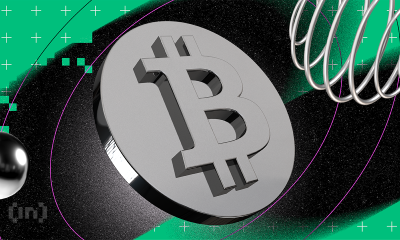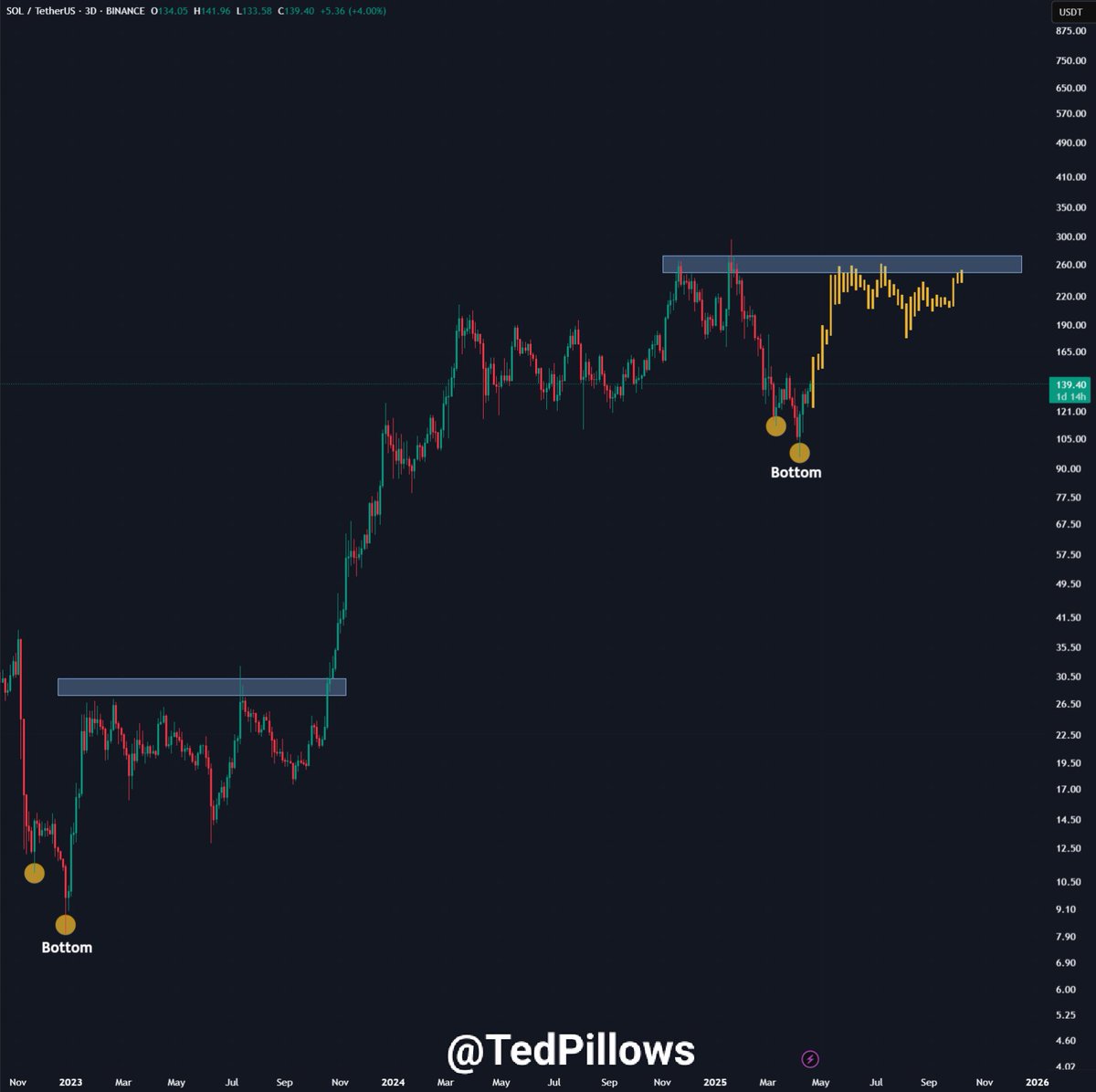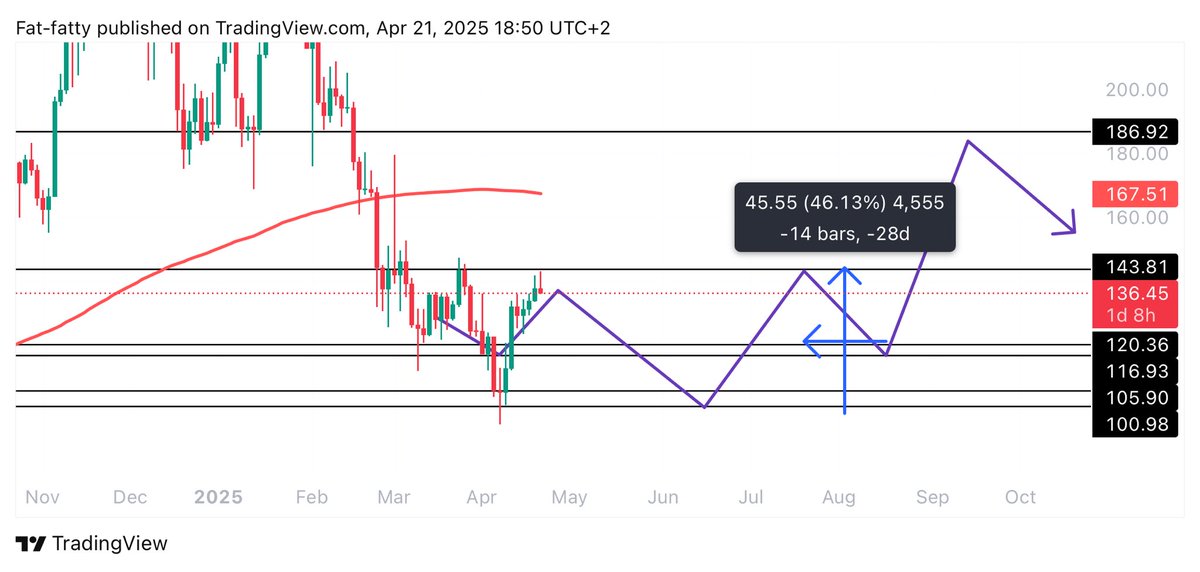Altcoin
SUI: 3 Reasons SUI Whales Are Migrating To New $0.001777 Cryptocurrency

In the dynamic and ever-evolving world of cryptocurrencies, “whales”, the large, influential investors—are always on the hunt for the next big opportunity. Recently, Sui Network (SUI) has been a major focus due to its remarkable transaction speeds and low fees, positioning itself as a formidable player in the DeFi space. However, a new contender has emerged, catching the eye of these savvy investors: Mpeppe (MPEPE), a cryptocurrency priced at just $0.001777, that’s poised to make waves in the gaming sector. Here are three compelling reasons why Sui Network (SUI) whales are beginning to migrate to Mpeppe (MPEPE).
1. Unparalleled Growth Potential in the Gaming Sector
Sui Network (SUI) has certainly carved out a niche in the decentralized finance (DeFi) space, with transaction speeds that surpass even those of Solana. But while Sui Network (SUI) excels in optimizing decentralized finance and dApps, Mpeppe (MPEPE) is targeting the rapidly growing gaming industry—a sector expected to experience exponential growth in the coming years.
Mpeppe (MPEPE), with its current price of $0.001777, is designed to seamlessly integrate blockchain technology with gaming, creating a platform that enables in-game asset ownership, decentralized marketplaces, and play-to-earn opportunities. This positions Mpeppe (MPEPE) perfectly to capitalize on the burgeoning interest in blockchain gaming, drawing attention from both gamers and developers.
For SUI whales, the potential to invest early in a project with such a strong use case in a booming market is highly attractive. The gaming industry’s growth, combined with Mpeppe’s innovative use of blockchain, offers a compelling narrative that not only complements but also diversifies their existing investments in Sui Network (SUI).
2. Early Entry Opportunities with High Reward Potential
One of the most enticing aspects of Mpeppe (MPEPE) is its attractive entry price of $0.001777. In the cryptocurrency world, early-stage investments have historically yielded some of the most substantial returns, especially when the project addresses a large, scalable market like gaming.
Sui Network (SUI) has already seen significant growth, becoming a staple in many investment portfolios. However, for those looking to diversify and maximize potential returns, Mpeppe (MPEPE) offers an exciting opportunity. The low entry price means that even a modest investment could result in significant gains if the project gains traction within the gaming community and beyond.
Moreover, Mpeppe (MPEPE) is still in the early stages of its Initial Coin Offering (ICO), which presents a rare chance for investors who missed out on the early gains in Sui Network (SUI) to potentially replicate or even exceed those returns by getting in before the broader market recognizes the project’s value.
3. Complementary Utility and Strategic Diversification
While Sui Network (SUI) is renowned for its speed and scalability, primarily focusing on decentralized finance and applications, Mpeppe (MPEPE) brings a different kind of utility to the table by targeting the gaming sector. This creates a complementary use case that doesn’t directly compete with Sui Network (SUI), but instead, enhances a diversified crypto portfolio.
Whales understand the importance of not putting all their eggs in one basket. By investing in both Sui Network (SUI) and Mpeppe (MPEPE), they can hedge against market volatility in any one sector while positioning themselves for potential outsized gains across different industries.
Additionally, Mpeppe’s (MPEPE) focus on building a decentralized gaming ecosystem, where players have true ownership over their digital assets, aligns perfectly with the broader movement towards decentralization and user empowerment—a trend that has already driven significant value creation in the crypto space.
Conclusion: A Strategic Migration for Maximum Gains
As Sui Network (SUI) continues to establish its dominance in the decentralized finance world, whales are beginning to explore new frontiers. Mpeppe (MPEPE), with its $0.001777 price point and focus on the gaming industry, offers a unique opportunity that complements the strengths of Sui Network (SUI) while providing exposure to a different, rapidly growing market.
For these strategic investors, the decision to diversify into Mpeppe (MPEPE) is driven by the potential for high returns, the strategic diversification it offers, and the complementary utility it brings to their portfolios. As blockchain technology continues to evolve, those who can identify and invest in emerging trends stand to reap the biggest rewards and Mpeppe (MPEPE) might just be the next big thing in this ever-changing landscape.
For more information on the Mpeppe (MPEPE) Presale:
Visit Mpeppe (MPEPE)
Join and become a community member:
https://x.com/mpeppecommunity?s=11&t=hQv3guBuxfglZI-0YOTGuQ
Altcoin
PumpFun Moves $13M SOL To Kraken as Solana Price Consolidates, What Next?

PumpFun has transferred 95,934 SOL, worth approximately $13.34 million, to Kraken, further adding to the total 1,818,889 SOL moved to the exchange in 2025, equating to around $324.06 million.
This move marks a continued trend of significant activity surrounding Solana (SOL), reflecting growing investor interest. As SOL consolidates its price following recent bullish trends, this development raises questions about the potential direction of the cryptocurrency.
PumpFun Whale Activity and SOL’s Recent Performance
According to blockchain data provider Lookonchain, PumpFun’s recent deposit adds to a growing list of whale activities. So far, in 2025, the total SOL moved to Kraken by PumpFun alone exceeds 1.8 million, highlighting a considerable volume of transactions. Solana’s price has shown notable strength, especially in light of recent whale movements, which tend to indicate investor confidence.
Solana’s price has recently cleared significant resistance levels, with many analysts suggesting the cryptocurrency is in a strong upward trend. A crypto analyst, Ted, has pointed out that the SOL price is showing bullish signs similar to the Q4 of 2022.
Ted suggests that SOL could see price levels between $160 to $180 by May 2025, with the potential for an all-time high later in the year. As whale activity continues, these predictions may influence market sentiment further.
Institutional Interest in Solana Surges
Institutional players’ participation is another factor that gives optimism to the SOL’s bullish run. Another player in the game is Galaxy Digital, though it has recently started making major withdrawals, pulling out about $77m worth of SOL from exchanges starting mid-April.
This also involved a substantial $19.5 million sell-off from Binance, showing faith in Solana’s potential. Other market players, such as Janover, also bought over $10m worth of Solana, validating the optimistic forecast for SOL price.
Such actions from institutional investors are usually viewed in the market as strong signs of confidence. Based on Galaxy Digital’s withdrawal, it could be estimated that large investors are preparing for higher SOL gains, which underlines the upbeat sentiment in Solana price. This increase in institutional support could enhance the overall market sentiment and help SOL rise in the short run.
Growing Number of Large Solana Holders
In addition to institutional interest like PumpFun’s, large retail investors are also becoming more active in Solana. Analyst Ali Martinez reported that the number of wallets holding 10,000 or more SOL increased by 1.53% in the past week.
This uptick, which grew from 4,943 wallets to 5,019, suggests that bigger holders are accumulating more Solana quietly. Such accumulation often occurs before broader market recognition, which can lead to price rallies.
This pattern of increasing wallet activity from significant holders further points to confidence in Solana’s potential. If these large investors continue to increase their positions, the demand for SOL could continue to rise, creating upward pressure on its price. The accumulation could be a sign that some are positioning themselves ahead of a potential breakout in price.
SOL Technical Analysis and Price Forecasts
The recent movement in Solana price has caught traders’ attention, with some analysts forecasting a continued rise. Another crypto analyst, Learnernoearner, suggested that an inverse head and shoulders pattern may be forming, indicating a potential long-entry opportunity.
If Solana price experiences a brief pullback, this could provide an attractive entry point for traders.
Key technical levels for SOL price include support at $125, immediate resistance at $135, and a breakout zone at $178. If SOL price breaches the $178 mark, further targets could include $199, $216, and $238, and some even suggest a rally to $2000.
Disclaimer: The presented content may include the personal opinion of the author and is subject to market condition. Do your market research before investing in cryptocurrencies. The author or the publication does not hold any responsibility for your personal financial loss.
Altcoin
Ark Invest Gains First Exposure to Solana With 3iQ ETF Bet

Ark Invest, the asset management firm owned by Cathie Wood, has gained its first exposure to Solana as the broader financial market expands its adoption of cryptocurrencies. The firm has added exposure to two tech investment vehicles via the 3iQ Solana Staking ETF (SOLQ). Market analysts believe this move validates SOL, a front-runner for spot altcoin ETF in the US.
The Ark Invest Solana Exposure
According to the Citywire report, the ARK Next Generation Internet ETF (ARKW) and ARK Fintech Innovation ETF (ARKF) have SOLQ in their respective portfolios. These Cathie Wood’s funds bought 237,500 shares of SOLQ apiece, validating the Solana fundamentals.
Canadian regulators approved the 3iQ SOL ETF for trading earlier this month, alongside other crypto funds from Purpose, Evolve, and CI. These ETF products went live on schedule on April 16, placing them in line for mainstream exposure.
As Ark Invest revealed in its press release, the Solana architecture and its design for speed and efficiency make it ideal for the next generation of the internet. With the bet, the Cathie Wood firm has made history as the first U.S.-based ETF to gain exposure to Solana.
Beyond Ark Invest and Solana: Portfolio Diversification Goes Mainstream
Asset management firms are shifting toward crypto products, a move beyond ARK and SOL. As CoinGape reported earlier, Charles Schwab has revealed plans to launch crypto trading later this year. The firm, with $10 trillion in assets under management, may add more credence to the nascent asset class if it pulls through with its plans.
Under President Donald Trump, the improving crypto regulation landscape has given asset managers like Ark Invest the long-sought leverage to bet on the market. The precedent was set earlier with spot Bitcoin and Ethereum ETF approval in 2024.
With key agencies like the Securities and Exchange Commission (SEC), Commodity Futures and Trading Commission (CFTC), and Federal Deposit Insurance Commission (FDIC) now aligned to crypto, more firms may soon join the diversification move.
Crypto ETFs and Role In TradFi Embrace
Despite the generally positive regulatory environment, many traditional financial firms are still skeptical of direct exposure to crypto. While many, like Ark Invest, do not mind the volatility, custody remains a major challenge.
More relatable products like Spot XRP ETF have been lodged with the SEC to mitigate this. With asset managers going all out in their bid, Solana, Hedera, Litecoin, and Dogecoin, among other assets, are also awaiting potential approvals from the SEC.
While the market regulator was skeptical of these kinds of products in the past, it now takes a different stance. Market experts expect approval before the end of this year.
Disclaimer: The presented content may include the personal opinion of the author and is subject to market condition. Do your market research before investing in cryptocurrencies. The author or the publication does not hold any responsibility for your personal financial loss.
Altcoin
Analyst Reveals How High XRP Price Can Go If This Happens

XRP price seems to be headed for a dramatic turning point, with various analysts citing bullish chart patterns that indicate a probable price spike over the next few months. The fourth-largest crypto is showing a strong technical setup on the 6-month candle chart, with formerly limiting resistance points now eliminated.
XRP Price Displays Eliminated Resistance And Bullish RSI
Technical analyst Dark Defender has posted a tweet that shows a 6-month candle chart indicating these “Eliminated Resistance” levels and a “Bullish RSI” (Relative Strength Index) indicator. The chart indicates that XRP has broken above significant historical resistance levels that previously capped price action.
Several price targets have emerged from analysts tracking the cryptocurrency. The analysts’ projections range from approximately $3.75 to over $18 in the coming months. Despite these bullish technical signals, sentiment indicators remain cautious, and the Fear & Greed Index shows a reading of 39. This places it in the “Fear” category.
6-Monthly time frame update on #XRP
Be honest: Is it Bullish or Bearish in the next 6 months?
The last candle will be closed by the end of June.
Short-Mid Term Targets: $3.75, $5.85, $18.22 (NFA)
I wish you an excellent weekend and a Happy Easter 🐣with your loved ones!… pic.twitter.com/pmuBkrn8Pe
— Dark Defender (@DefendDark) April 19, 2025
The 6-month candle chart for XRP/USD shared by analyst Dark Defender highlights two key technical factors that could support a potential price surge. First, the chart identifies multiple “Eliminated Resistance” levels that XRP has now cleared. This removes previous price ceilings that constrained upward movement in past cycles.
These eliminated resistance zones appear at different points on the historical chart, with the most recent breakthrough occurring in the latest completed candle. According to Dark Defender, this technical development raises an important question for traders: “Is it Bullish or Bearish in the next 6 months?” The analyst indicates that the present candle will close at the end of June 2025, giving the traders a time frame for possible price action.
The second important technical signal highlighted is a “Bullish RSI” reading. The Relative Strength Index, at the lower part of the chart, is shown to be on the rise, moving into bullish levels above the 70 level. This momentum indicator shows increasing buying pressure behind XRP’s recent price action.
XRP Could Soon Hit $5
CryptoBull analyst provides additional technical analysis, labeling the pattern as a massive bullish falling wedge with an even larger bullish triangle encompassing the wicks. The analyst predicts a breakout from the patterns and a target price that could see XRP go as high as $5 before finally landing at a base of $3.85.
#XRP Update: huge bullish falling wedge with an even bigger bullish triangle covering the wicks. We will break out soon and price will wick up to $5 and close around $3.85. pic.twitter.com/rqbIASYRpl
— CryptoBull (@CryptoBull2020) April 21, 2025
There have been suggestions by analysts about specific price targets for XRP in their outlook. Dark Defender shared short-term to medium-term target prices of $3.75, $5.85, and a wildly high target at $18.22.
CryptoBull offered a more detailed price action prediction and indicated that XRP is going to breakout in the near future with price action that can include a wick up to $5 and close around $3.85.
Amidst these modest predictions, certain analysts even predicted the XRP price to reach $280. Another analyst, Captain Faibik, instructed followers to continue purchasing XRP. He further added that the next increase will be “explosive” to the $5 level in the mid-term. Multiple analysts in agreement at the $5 level indicate it might be a key target for traders and investors.
Keep accumulating $XRP, Next Bullish leg will be explosive..📈
Midterm Target : 5$ 🎯
#XRP #XRPArmy #XRPUSDT pic.twitter.com/95TKndWlws
— Captain Faibik 🐺 (@CryptoFaibik) April 21, 2025
Though analysts are optimistic, the prevailing mood in the market is cautious. CoinCodex indicates their latest forecast predicts that XRP could drop by 8.35% to $1.95 on May 21, 2025. CoinCodex also predicts that XRP had 13 days of gain in the previous 30 days (43%), and price activity has averaged 7.48% in the last 30 days.
Disclaimer: The presented content may include the personal opinion of the author and is subject to market condition. Do your market research before investing in cryptocurrencies. The author or the publication does not hold any responsibility for your personal financial loss.
-

 Bitcoin19 hours ago
Bitcoin19 hours agoUS Economic Indicators to Watch & Potential Impact on Bitcoin
-

 Market22 hours ago
Market22 hours agoBitcoin Price Breakout In Progress—Momentum Builds Above Resistance
-

 Altcoin17 hours ago
Altcoin17 hours agoExpert Reveals Why BlackRock Hasn’t Pushed for an XRP ETF
-

 Altcoin22 hours ago
Altcoin22 hours agoExpert Says Solana Price To $2,000 Is Within Reach, Here’s How
-

 Market20 hours ago
Market20 hours agoSolana Rallies Past Bitcoin—Momentum Tilts In Favor of SOL
-

 Market19 hours ago
Market19 hours agoVitalik Buterin Proposes to Replace EVM with RISC-V
-

 Bitcoin17 hours ago
Bitcoin17 hours agoSolana, Bitcoin in Texas, and Initia
-

 Market17 hours ago
Market17 hours agoWill Bittensor Surpass Bitcoin as a Store of Value? Expert Predicts

























✓ Share: